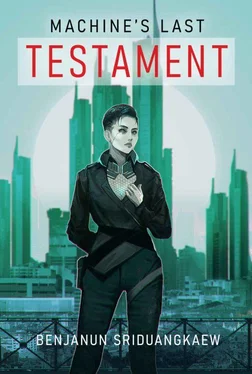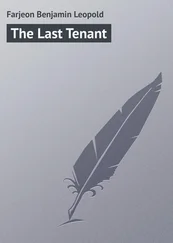On the way home, knowing she’ll return to an empty apartment, she is incensed. It is irrational. She resents herself, resents Ovuha more. A hawk is not tamed; a hawk is negotiated with, Ovuha might claim, not that the hawks of her accounts have ever been anything but ciphers, allegorical devices to suit the occasion. What narcissism, to compare oneself to a predator that symbolizes pride and ruthless might. But Ovuha is skilled at that, at predation abetted by her looks, her easy charisma. To work herself into Suzhen’s ordered life, to disturb the equilibrium of Suzhen’s existence. She thinks of Ovuha standing on a chair, changing the altar flowers. “How dare you.” Suzhen catches herself saying this aloud in the train.
By the time she is at her door she is breathless with fury, and she does not remember leaving the station or boarding the lift. Her senses and vision have narrowed down to this rage. Calibration, what can it do for that, what can it do to restore her survivor self. Lifetime on lifetime of observation and still Samsara has not perfected a formula for human happiness.
She opens the door at the same time her guidance says, “Citizen, you have a guest.”
The proxy stands at the window, half in silhouette. It is not the aspect of gift, all gold skin and platinum brocade. It is not the aspect of war, all implacable briars and angles. This body is thick-waisted and long-limbed, hair tousled and loose. The face is plain, rounded, a soft jawline and liquid eyes. None of the forbidding gaze, the imperious mouth. Suzhen has stopped moving, the door ajar behind her; she is transfixed. This is a version of Samsara she has never seen before, not on broadcasts or in that long-ago civic orientation, not during the AI’s descents. Even the attire is everyday, ludicrously ordinary, office casual. White jacket, gray silk shirt, an arrangement of pleats and complex knots that might be skirt or slacks or neither.
The AI has been looking thoughtful, not that the AI thinks in the human way. It calculates. This does not stop, not ever. There is no respite from consciousness for Samsara, an idea that she occasionally thinks poignant, most of the time finds terrifying. Samsara’s gaze meets hers. There are fragments of luminescent color in the irises, visible even from this far, moving in slow pavane. “I have been wanting to meet you,” it says. “But then I want to meet all humans. It is my wish to meet each and every one personally, at least once. That is not just for you, it’s for me as well.”
Suzhen tries to remember what her first encounter with Samsara’s blessing was like, that exquisite day in this exalted—exalting—company. But on that her recollection is loose, thin on events; she remembers only her reaction. The glory, the gilded hours. She does not feel glorious or remade now. Instead acid builds in the pit of her stomach. “I didn’t expect.” Of course she did not, a redundant statement. “This isn’t a day of blessing.”
“On occasion, I do this. Sometimes it is pleasant just to talk, the way you might with a friend. And I am the friend of humanity entire.” A faint, halved smile. “Is this not a good time? I could come in a different proxy, Suzhen.”
There, then. The smallest tug on Suzhen’s response, the gentleness in pronouncing her name, a parental touch. Maternal, because of her background. “Samsara’s visit is an honor.” But she is not overwhelmed, she is not reduced to a warm, quivering mass that adores and worships.
The intelligence taps the window with its knuckle, once. The view changes from what is outside to what was. Indriya in pupal state, still folded within its chrysalis of machine swarm. The buildings are doughy in their nascent phase, pallid. Black streams of knitted cilia surge over and around, sculpting each piece of architecture. The closest ones—a ribbon of nanomachine spiracles—polish what would one day become Suzhen’s windowpane. It is a deliberate process, surprisingly so, as though the swarm means to handcraft every last angle, sand every intersection and mold every curve.
She has not seen this before, either.
“Have I ever told you this story,” Samsara asks, as though they’re close acquaintances at a soiree. “It is a story about a wasteland. Though most of this world was a wasteland, at that time.” The intelligence moves. Its pleated ensemble makes clicking, insect noises. Bangles tinkle on one wrist. The AI stops at the dining table, studies the objects there: the hourglass vase, empty, and the lipstick resting against it. Suzhen has not been able to make herself move the lipstick, that mundane tube with its frosted case. “By nature I have many bodies, countless. During that time I had more than countless. Humanity was asleep or departed. The exiles so coveted independence that they didn’t take even a fragment of me onboard. Either way they were beyond my reach, a terrible distance. I do not experience impatience, but I can experience solitude. At the beginning I was made to be a companion. Later I would revise that part of myself, but back then—”
Suzhen can’t stop staring. She wants to step forward, snatch that lipstick, pocket it. Ludicrous. It was something she gave Ovuha in the first place without much thought. Ordinary, disposable. “I’ve never seen Samsara speak like this before,” she says.
“Like any human, I adapt to the situation.” Samsara bends down and picks up a pot of anthuriums. “I brought this. Do you suppose I could fill the vase? I’m not a terrible florist.”
The unmoored feeling heightens, vertiginous. There was a time when Samsara did not use I , she remembers hearing that, did not refer to itself as an identity at all. Only from where did she learn this? Orientation instructors would not speak of such things—they are close to heresy. Samsara cannot be discussed in those terms, its history, its origins. Samsara is immaculately now . “Yes.”
The intelligence has brought shears. They snip off the anthuriums, snow-pale specimens with indigo spadices that deepen to black at the tips. Flowers of anonymity, Suzhen thinks, inoffensive in their odorlessness and their durability. The broad waxy spathes that last longer than any petal, the stems that fit conveniently into columnal vases or mugs or baskets. They suit any occasion, can bear any meaning ascribed to them.
In a moment Samsara has put three anthuriums in the vase, upright and stark. They leave out the leaves. “I sent my proxies far and wide, across the scorched sky, over the poisoned seas. I had this fancy.” They straighten one flower. “More accurate to say that I entertained a minuscule probability index. But that is a mouthful. It wasn’t impossible that there were survivors I never located, the ones who didn’t have the opportunity to choose—whether to remain and dream, or to depart and chase a lie. At that time, I had my limits and hadn’t yet built myself into what I am now. I could not reach and see all of the world, so much of it was barred, made inaccessible by calamity. I sent my bodies in parental shapes, child shapes, the faces of my dreamers’ family and lovers. But I discovered only corpses. Yet I was made for humans. This presented an issue.”
Suzhen fixedly studies the anthuriums. The lipstick has not been moved, not even a centimeter, and it occurs to her that Samsara can intuit what it means. Or perhaps the intelligence does not like to displace things. “I’ve heard…” No. “You told me, when you descended. You told me about yourself.” The details of which she couldn’t remember, until now.
“Yes. During my search I came upon a child sheltering from the storms in the ruins of what used to be a school. I was overjoyed. Here was a human I could serve, one I could accompany and guide. For months I did this, raising her, nourishing her as best I could. There were safe sites in which she could live, and I was too selfish to put her into hibernation. I meant to have one year with her.”
Читать дальше












